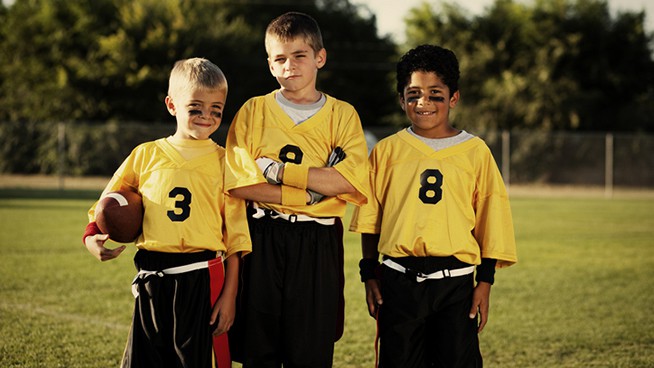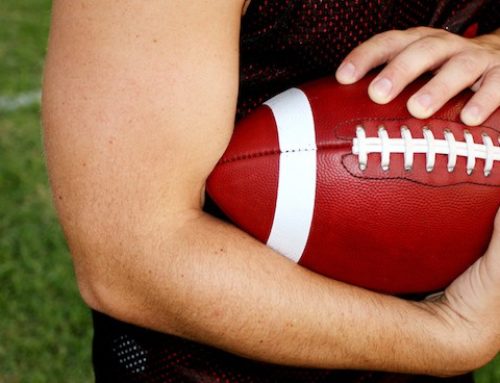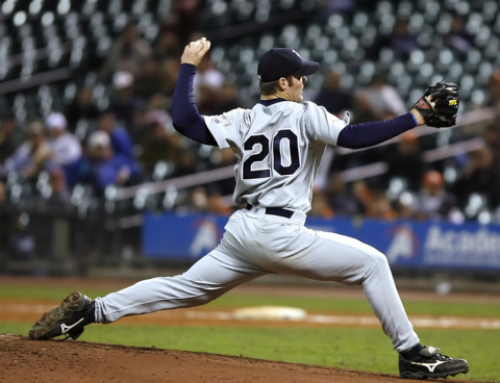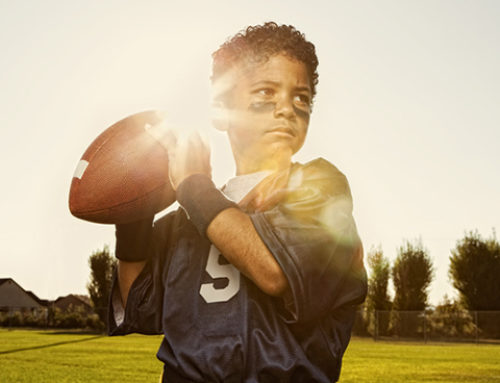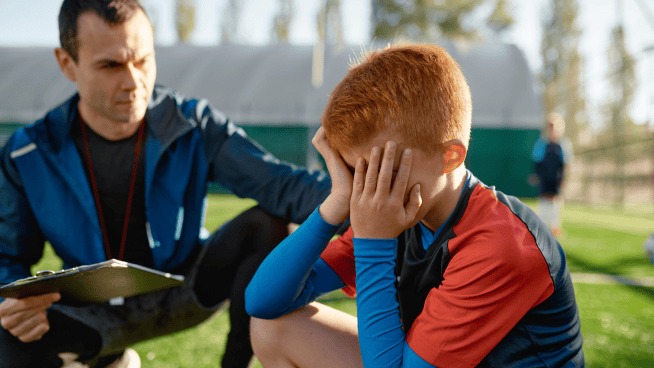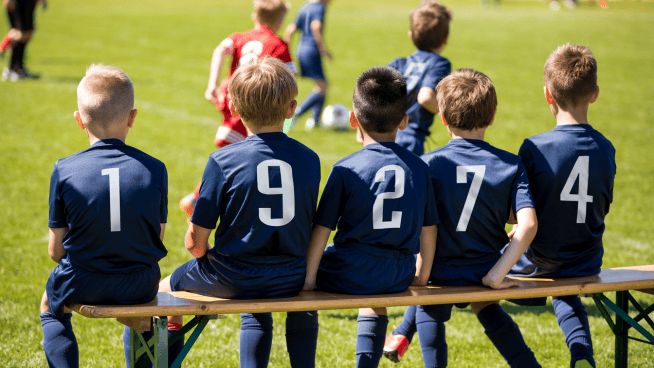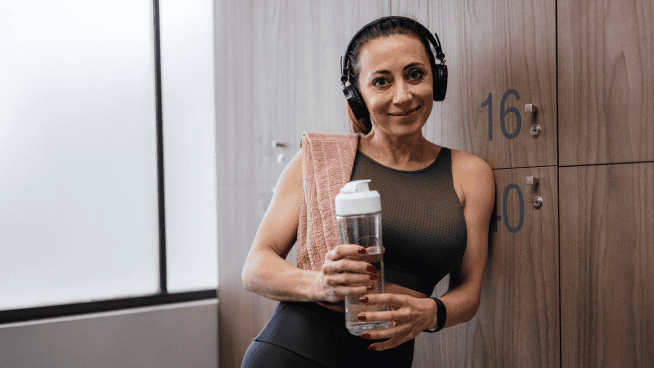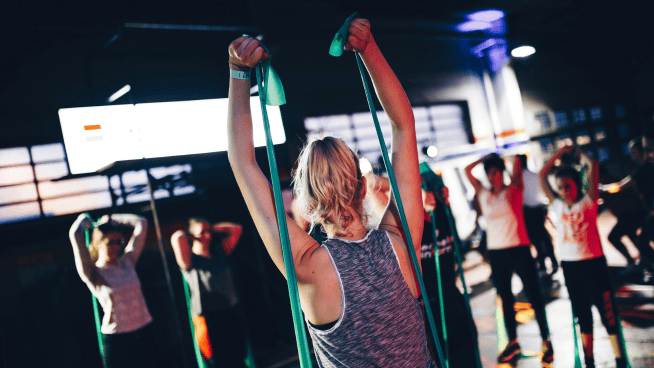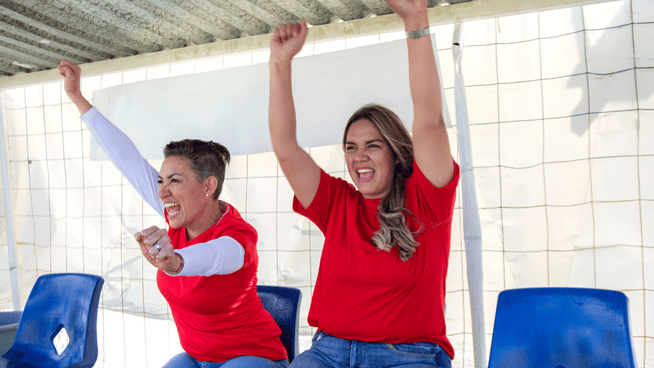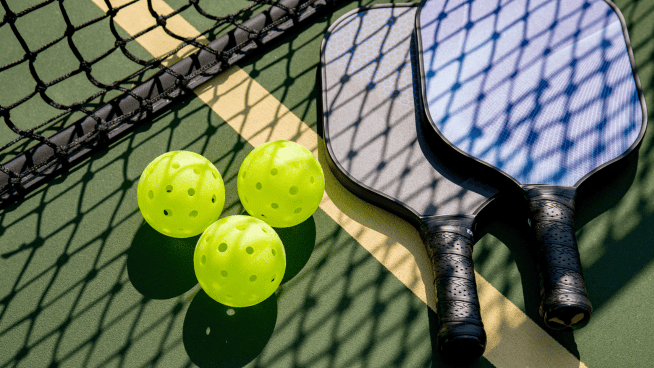Washington CB Sidney Jones’s High School Coach Told Him He Wasn’t Good Enough to Play Cornerback
Sidney Jones’s Path to the Pros was going exactly as planned. Over three seasons for the Washington Huskies, Jones established himself as one of the premier cornerbacks in college football, snagging eight interceptions and causing six fumbles—not to mention his consistent shutdown coverage.
At the 2017 NFL Scouting Combine, the Diamond Bar, California, native put up a solid performance. According to NFL.com, he earned a grade of 6.5, which predicts he has a chance to make the Pro Bowl one day.
However, things went awry during his Pro Day when he rupture his Achilles tendon during a routine drill. Jones recalled this experience in an article on The Players’ Tribune:
I was doing this drill where I’d backpedal until a coach yelled, “Break!” That was the cue for me to cut diagonally upfield to follow an imaginary receiver. I had done this thousands of times in practice, and to that point I was feeling real good about how quickly I was getting out of my breaks.
I lined up one last time, started backpedaling, heard the coach yell “Break!” and turned to my right. I had only taken about a step and a half when suddenly it felt like a ball had hit my ankle.
In an instant, a bunch of questions flashed through my head. Why was someone throwing at my foot? Was it to try to distract me to see how I’d react? Had someone missed their target and accidentally thrown into our drill?
As I was tumbling to the ground, my eyes darted to the space around me.
No ball.
I sat up and instinctively held my calf. I looked straight ahead at the ground.
No ball.
Budda Baker, one of my best friends, came to help me up. He sort of lifted me up and I tried to take a step, but I couldn’t move. Then Coach Pete came up to me. When he saw that I couldn’t move my left ankle, his face showed everything. This was serious.
As my coaches helped me off the field, I didn’t wince or show any pain. But it wasn’t an act. I legit didn’t feel pain. Nothing actually hurt. For real.
That’s kinda when I knew it was bad.
Although it was a significant setback, Jones is still a widely coveted prospect, and he plans to use this experience to his advantage and come back better than ever. Many will doubt him, but that’s something he’s accustomed to.
After being told by a coach that he wasn’t good enough to play cornerback on his high school team, Jones proved him wrong in a massive way. Not only was he recruited to play Division I football, he was named second-team All-American and first-team All-Pac 12 after his 2016 season at Washington.
Once his rehab is complete, Jones will be out to prove that whatever NFL team selects him in the 2017 NFL Draft made a smart decision, and those that passed on him made a serious mistake. Based on his past, we’d have to put our money him.
We had the chance to catch up with Jones as he was training for the 2017 NFL Scouting at EXOS (Phoenix).
STACK: What are you trying to improve before the Combine?
Sidney Jones: My primary goals are getting bigger and faster, working on my nutrition and getting my body as fit as possible for the process.
People say I have a smaller frame, but that fits my playing style. That’s what I’m comfortable at. But I’m trying to put on more muscle, put more weight on so they won’t have that excuse to knock me.
I’m just trying to stick the process they have for me [at EXOS] so I can achieve my goals and just go hard in the weight room every day, attacking every set and acting like it’s my last set. That’s the mentality I use.
What are you trying to prove to coaches and scouts?
I’m trying to show that I’m the complete player—cover, tackle—anything they ask me to do. I just want to prove to them I can do it and that just makes my value greater and bigger. My strength, I think, is my competitiveness, just having that mindset. Attacking every play at full speed and never giving up. If you get beat on a play, it’s OK. It’s going to happen. It’s football.
What was your childhood like?
My mom raised me in single-parent home. It wasn’t too tough, but it wasn’t like the easiest, obviously. Just working through that. I had a stepdad who really changed my life in a way because he was my coach. He was just there for me. He was there for me every step of the way. We have a great relationship as it is today. I thank him a lot for that.
I took from them that you need to be respectful everywhere you go. Just being polite—carrying yourself in a great manner. That goes a long way in my eyes.
Did you face an obstacles as you were growing up?
It was in high school, freshman or sophomore year, one of my coaches told me I would never play for his defense. So, that kind of drove me.
I was a receiver. I was a good receiver. I played both sides of the ball and I was a safety so that was my freshman year. Next year, I was like, “I’m good at safety but I think I’m too small to play safety so I’ll play corner.” I moved to corner and I wasn’t that good.
He said, “You’re an offensive player only,” so I went to go play offense. I wasn’t too mad because I knew I was good at offense, so I just kind of took it for what it was at that moment. But I kind of sat on and thought about it like, “You can’t tell me I can’t play defense.” I was good at safety before that, but I just felt like I should play corner.
So, that kind of drives me. I transferred schools after that, and I went to play cornerback at another school and I was successful there. It kind of just worked out. I just brush it off now. I don’t even think about it too much; but if I need some extra juice to fuel me up, I can always go back to that story.
What’s it feel like when you make an interception?
It’s the greatest feeling ever. The ball is coming your way, you’re in position to catch the ball and it’s just like, “don’t drop it, catch the ball.” That is all you’re thinking about—catch the ball and just secure the catch if you’re tackled.
What’s your favorite interception?
It was in the 2015 Apple Cup [a rivalry game between the University of Washington and Washington State University]. I was in zone coverage and I jumped the comeback for a pick six.
[youtube video=”tdf47kTY0X8″ /]Another one was this past season against Cal. I jumped the route, and I just felt like the receiver because I jumped in front of the ball to snag it from him.
[youtube video=”eUGPg4Z1KFs?t=2m11s” /]What was it like playing with Marcus Peters?
I watched his reps in practice to see what he did well, see what he did wrong and I’m taking that all in to help me as a player, obviously. Just playing on the opposite side of him, it was cool. He’s doing well in the league, obviously. It was a cool experience.
What NFL player do you compare yourself to?
That’s a hard one. I don’t know if I can compare myself to anybody that I really watch. I started off like just watching players like Richard Sherman. Seattle is obviously my backyard. I don’t know who I’d be most like. Probably Richard Sherman if anything, but he’s 6-foot-3 and I’m 6-foot. I can’t imitate my game too much after him. So, I don’t know who I’ll say.
How do you want to be remembered as a player?
I just want to be remembered as the guy who has great character on and off the field, and as a person who just left it all on the field every time. I just don’t want to have any regrets when leaving the field.
RECOMMENDED FOR YOU
MOST POPULAR
Washington CB Sidney Jones’s High School Coach Told Him He Wasn’t Good Enough to Play Cornerback
Sidney Jones’s Path to the Pros was going exactly as planned. Over three seasons for the Washington Huskies, Jones established himself as one of the premier cornerbacks in college football, snagging eight interceptions and causing six fumbles—not to mention his consistent shutdown coverage.
At the 2017 NFL Scouting Combine, the Diamond Bar, California, native put up a solid performance. According to NFL.com, he earned a grade of 6.5, which predicts he has a chance to make the Pro Bowl one day.
However, things went awry during his Pro Day when he rupture his Achilles tendon during a routine drill. Jones recalled this experience in an article on The Players’ Tribune:
I was doing this drill where I’d backpedal until a coach yelled, “Break!” That was the cue for me to cut diagonally upfield to follow an imaginary receiver. I had done this thousands of times in practice, and to that point I was feeling real good about how quickly I was getting out of my breaks.
I lined up one last time, started backpedaling, heard the coach yell “Break!” and turned to my right. I had only taken about a step and a half when suddenly it felt like a ball had hit my ankle.
In an instant, a bunch of questions flashed through my head. Why was someone throwing at my foot? Was it to try to distract me to see how I’d react? Had someone missed their target and accidentally thrown into our drill?
As I was tumbling to the ground, my eyes darted to the space around me.
No ball.
I sat up and instinctively held my calf. I looked straight ahead at the ground.
No ball.
Budda Baker, one of my best friends, came to help me up. He sort of lifted me up and I tried to take a step, but I couldn’t move. Then Coach Pete came up to me. When he saw that I couldn’t move my left ankle, his face showed everything. This was serious.
As my coaches helped me off the field, I didn’t wince or show any pain. But it wasn’t an act. I legit didn’t feel pain. Nothing actually hurt. For real.
That’s kinda when I knew it was bad.
Although it was a significant setback, Jones is still a widely coveted prospect, and he plans to use this experience to his advantage and come back better than ever. Many will doubt him, but that’s something he’s accustomed to.
After being told by a coach that he wasn’t good enough to play cornerback on his high school team, Jones proved him wrong in a massive way. Not only was he recruited to play Division I football, he was named second-team All-American and first-team All-Pac 12 after his 2016 season at Washington.
Once his rehab is complete, Jones will be out to prove that whatever NFL team selects him in the 2017 NFL Draft made a smart decision, and those that passed on him made a serious mistake. Based on his past, we’d have to put our money him.
We had the chance to catch up with Jones as he was training for the 2017 NFL Scouting at EXOS (Phoenix).
STACK: What are you trying to improve before the Combine?
Sidney Jones: My primary goals are getting bigger and faster, working on my nutrition and getting my body as fit as possible for the process.
People say I have a smaller frame, but that fits my playing style. That’s what I’m comfortable at. But I’m trying to put on more muscle, put more weight on so they won’t have that excuse to knock me.
I’m just trying to stick the process they have for me [at EXOS] so I can achieve my goals and just go hard in the weight room every day, attacking every set and acting like it’s my last set. That’s the mentality I use.
What are you trying to prove to coaches and scouts?
I’m trying to show that I’m the complete player—cover, tackle—anything they ask me to do. I just want to prove to them I can do it and that just makes my value greater and bigger. My strength, I think, is my competitiveness, just having that mindset. Attacking every play at full speed and never giving up. If you get beat on a play, it’s OK. It’s going to happen. It’s football.
What was your childhood like?
My mom raised me in single-parent home. It wasn’t too tough, but it wasn’t like the easiest, obviously. Just working through that. I had a stepdad who really changed my life in a way because he was my coach. He was just there for me. He was there for me every step of the way. We have a great relationship as it is today. I thank him a lot for that.
I took from them that you need to be respectful everywhere you go. Just being polite—carrying yourself in a great manner. That goes a long way in my eyes.
Did you face an obstacles as you were growing up?
It was in high school, freshman or sophomore year, one of my coaches told me I would never play for his defense. So, that kind of drove me.
I was a receiver. I was a good receiver. I played both sides of the ball and I was a safety so that was my freshman year. Next year, I was like, “I’m good at safety but I think I’m too small to play safety so I’ll play corner.” I moved to corner and I wasn’t that good.
He said, “You’re an offensive player only,” so I went to go play offense. I wasn’t too mad because I knew I was good at offense, so I just kind of took it for what it was at that moment. But I kind of sat on and thought about it like, “You can’t tell me I can’t play defense.” I was good at safety before that, but I just felt like I should play corner.
So, that kind of drives me. I transferred schools after that, and I went to play cornerback at another school and I was successful there. It kind of just worked out. I just brush it off now. I don’t even think about it too much; but if I need some extra juice to fuel me up, I can always go back to that story.
What’s it feel like when you make an interception?
It’s the greatest feeling ever. The ball is coming your way, you’re in position to catch the ball and it’s just like, “don’t drop it, catch the ball.” That is all you’re thinking about—catch the ball and just secure the catch if you’re tackled.
What’s your favorite interception?
It was in the 2015 Apple Cup [a rivalry game between the University of Washington and Washington State University]. I was in zone coverage and I jumped the comeback for a pick six.
[youtube video=”tdf47kTY0X8″ /]Another one was this past season against Cal. I jumped the route, and I just felt like the receiver because I jumped in front of the ball to snag it from him.
[youtube video=”eUGPg4Z1KFs?t=2m11s” /]What was it like playing with Marcus Peters?
I watched his reps in practice to see what he did well, see what he did wrong and I’m taking that all in to help me as a player, obviously. Just playing on the opposite side of him, it was cool. He’s doing well in the league, obviously. It was a cool experience.
What NFL player do you compare yourself to?
That’s a hard one. I don’t know if I can compare myself to anybody that I really watch. I started off like just watching players like Richard Sherman. Seattle is obviously my backyard. I don’t know who I’d be most like. Probably Richard Sherman if anything, but he’s 6-foot-3 and I’m 6-foot. I can’t imitate my game too much after him. So, I don’t know who I’ll say.
How do you want to be remembered as a player?
I just want to be remembered as the guy who has great character on and off the field, and as a person who just left it all on the field every time. I just don’t want to have any regrets when leaving the field.





